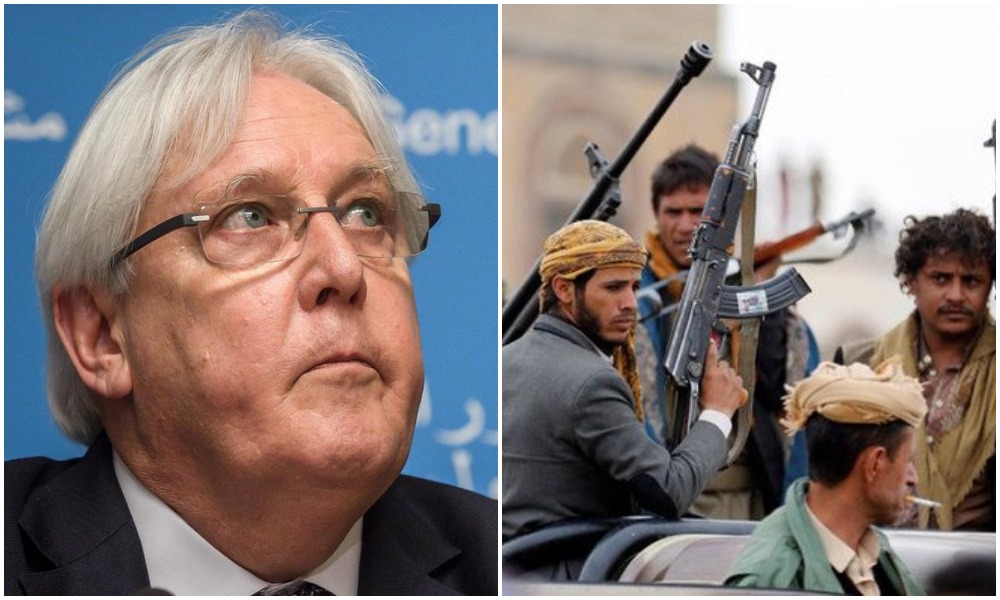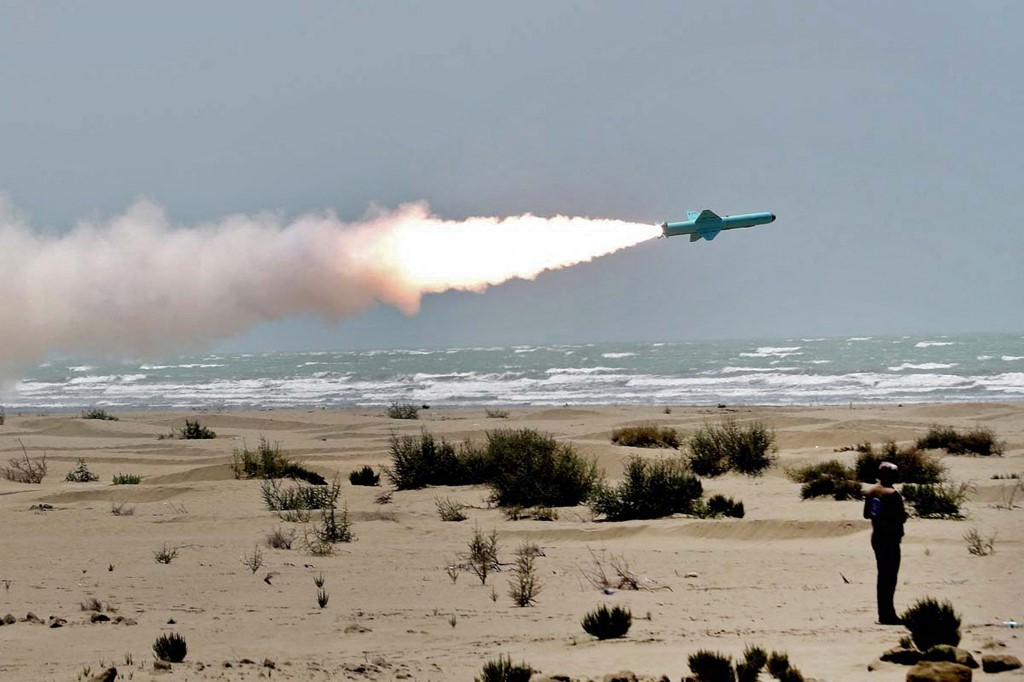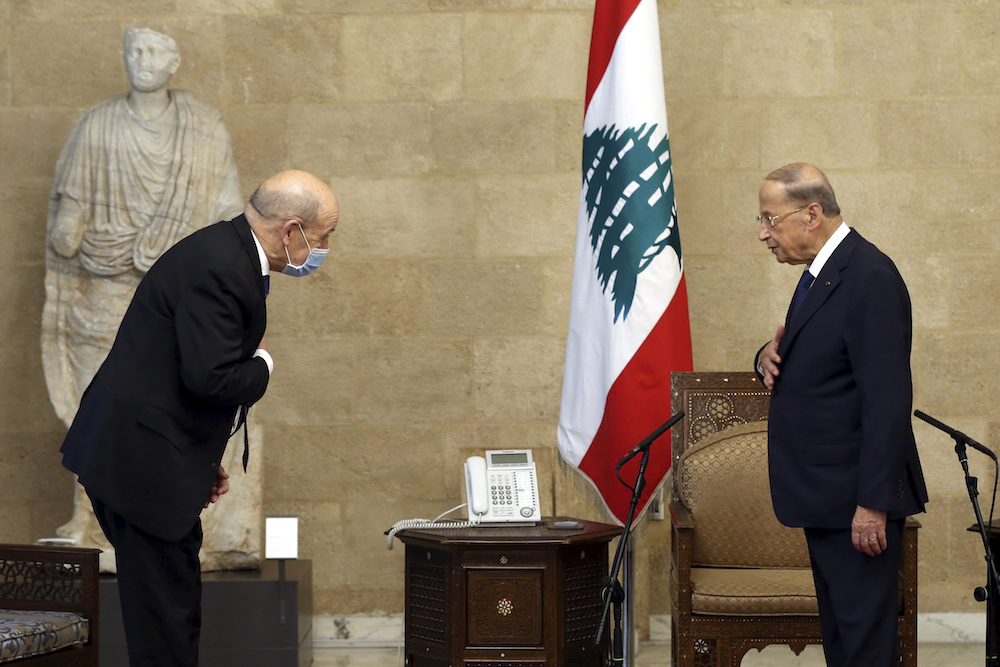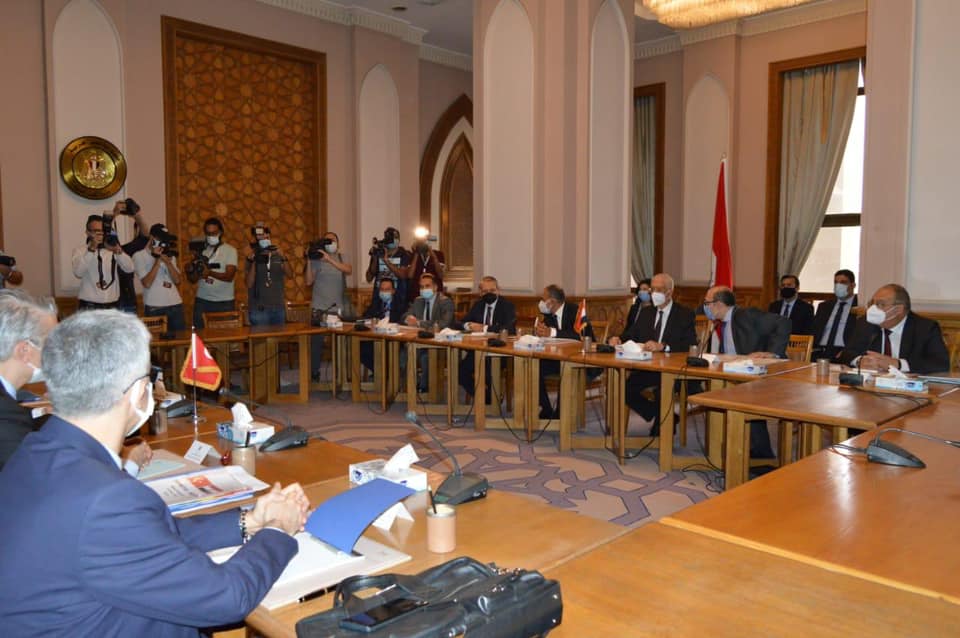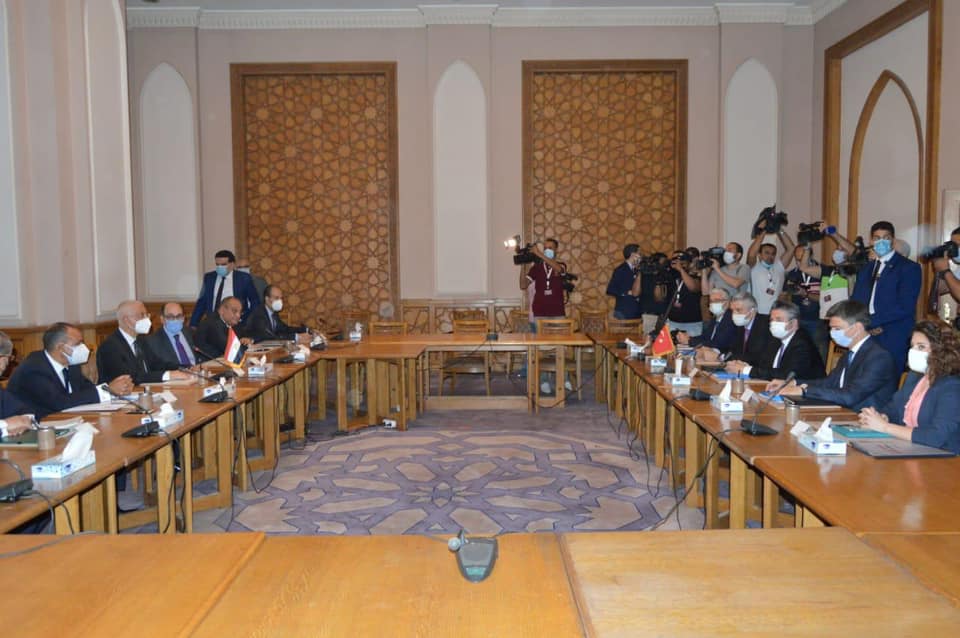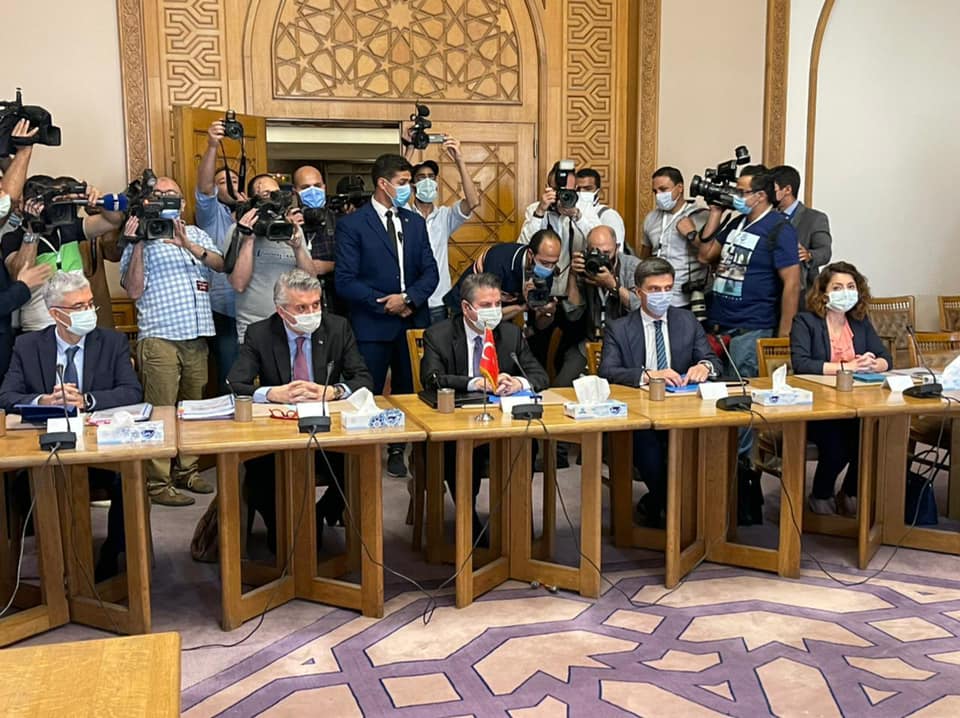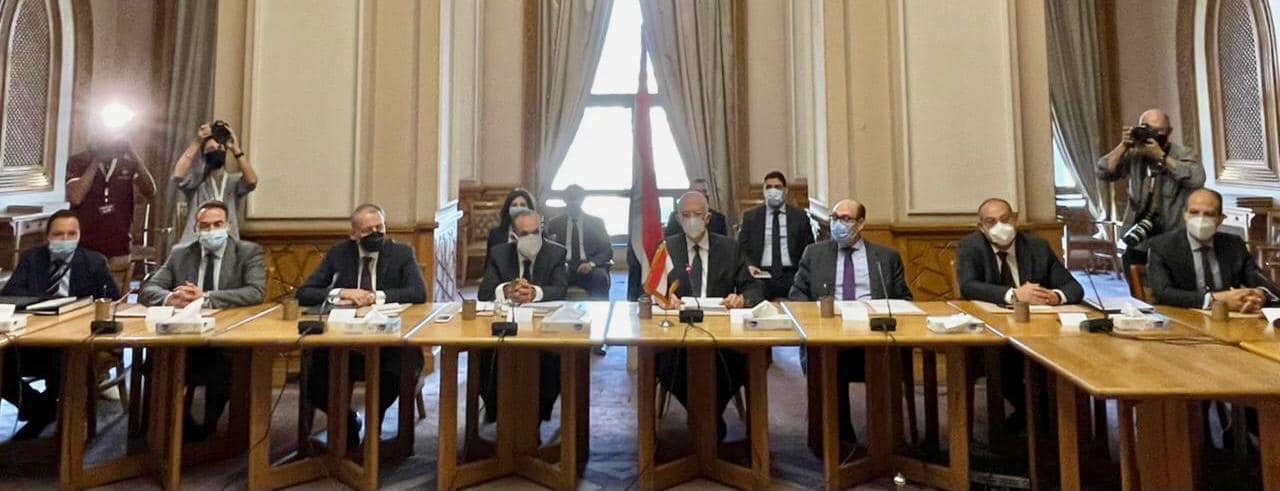BEIRUT: French Foreign Minister Jean-Yves Le Drian stressed during his meetings with Lebanese officials on Thursday that “the French initiative to solve the crisis in forming the Lebanese government is still in force and the responsibility for implementing it rests with the Lebanese.”
Arab News has learned that Le Drian also hinted that sanctions might be imposed against those who obstruct the formation of the new government.
On the eve of his arrival in Beirut, Le Drian tweeted that he would deliver “a strongly worded message to political officials and a message expressing our full solidarity with the Lebanese people. We will deal firmly with those who obstruct the formation of the government, and we have taken national measures, and this is only the beginning.”
He also said that his visit to Lebanon “confirms France’s solidarity in the field of education, medicine, and archeology as well as its support for the Lebanese who are doing their best for their country.”
Following the Beirut port blast in August, French President Emmanuel Macron announced an initiative to help form a government of specialists to help lift Lebanon out of its economic crisis.
However, Macron’s initiative has not yet been implemented, so people in Lebanon followed Le Drian’s meetings with interest.
Before Le Drian’s visit there was speculation that he did not intend to meet with Prime Minister-designate, Saad Hariri, but might meet with the leader of the Free Patriotic Movement (FPM), Gebran Bassil.
Some had predicted that Hariri would give up his post as PM-designate due to his ongoing disagreement with President Michel Aoun and his political team over the formation of the new government, with Aoun reportedly demanding a ‘blocking third’ for his allies.
However, after meeting with Aoun, Le Drian also met with Speaker of the Parliament Nabih Berri as well as Hariri.
Aoun’s media office reported that, during his meeting with Le Drian, the president said, “Achieving reforms, foremost of which is the financial audit, which constitutes the first item in the French initiative announced on Sept. 1, 2020, is essential for the advancement of Lebanon and restoring the confidence of the Lebanese and the international community. Forming a new government that will enjoy the confidence of parliament is the top priority.”
Aoun pledged to “continue exerting efforts to reach practical results in this issue, despite the internal and external obstacles and the lack of response of those concerned, by following the constitutional principles and methodology adopted in forming governments.”
He also laid out “the constitutional responsibilities entrusted to the president … and his responsibility to maintain political and sectarian balance during the formation of the government to ensure that it gains the confidence of parliament” and spoke about the “cost of wasted time to complete the formation process.”
The meeting between Aoun and Le Drian lasted for half an hour, after which Le Drian left without making a statement.
Le Drian held meetings at the Senoub Palace with a number of opposition and partisan figures, including leaders of groups protesting against the corruption of the ruling authority. These groups presented their views on the current reality in Lebanon and their vision of ways in which France could provide assistance to Lebanon to ensure a peaceful transfer of power, stage parliamentary elections, and address financial cases.
However, several groups declined the invitation, including the “Li Haqqi” (I Have My Right) group. Nizar Hassan, a researcher in social movements from that group, told Arab News: “A lengthy discussion took place within the group about the feasibility of attending the meeting with the French minister, and we decided not to attend because there was no great benefit (in doing so).”
He said there were several reasons for this, including “the rejection of France’s attempt to bring the political class in Lebanon to the surface to restore it to power again.”
Future Movement MP Mohamad Hajjar described the speculation that Le Drian would not meet with Hariri as “illogical.”
He said Hariri is committed to “forming a government of specialists to help the country, while another party insists on putting the country on the brink and is dealing with everyone on the basis that either MP Gebran Bassil be the next president or the country will fall into chaos. And Hezbollah is watching.”
Lebanon’s economic crisis reached a new peak on Thursday when Electricité du Liban (EDL) announcement that it no longer had enough money to buy fuel and that it would “be forced to reduce its production, which would negatively impact the feeding hours in all regions, including the administrative areas of Beirut.”
This came hours after the financial prosecutor, Judge Ali Ibrahim, issued a decision to stop the payment of sums owed to the Turkish energy company Karadeniz and its Karpowership branch in Lebanon for power ships chartered to produce electricity.
The judge’s decision was based on “preliminary investigations conducted by the Financial Prosecutor’s Office into the possibility of brokers, commission, or corruption in the dealership of ships producing electricity” and is intended to “oblige the two aforementioned companies to return $25 million to the Lebanese state, and to circulate a search and inquiry order against the owners of the two companies.”
On Wednesday, the Constitutional Council suspended a law that parliament had approved granting and advance from the treasury to EDL after MPs from the Lebanese Forces Party filed an appeal “because the advance will use the money of the people and depositors remaining in the reserves of the Banque du Liban to finance electricity, and this was described by the MPs as burning people’s money.”
The Constitutional Council stressed, “If the law violates the constitution, it will be annulled, and if it is not in violation, we will reject the appeal.”
